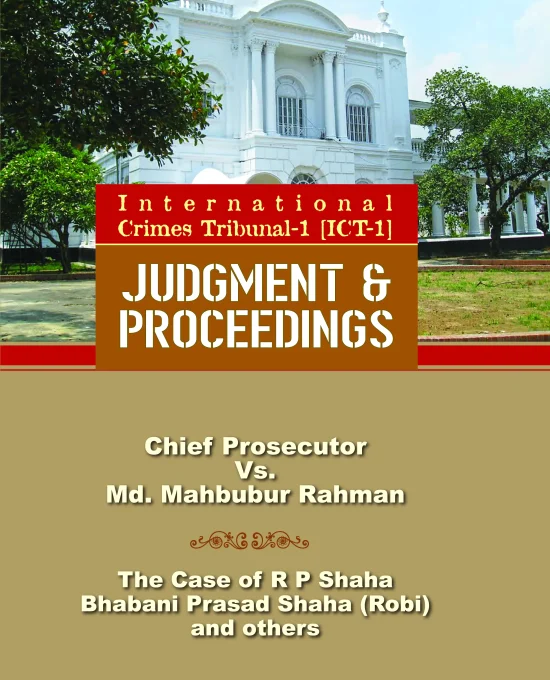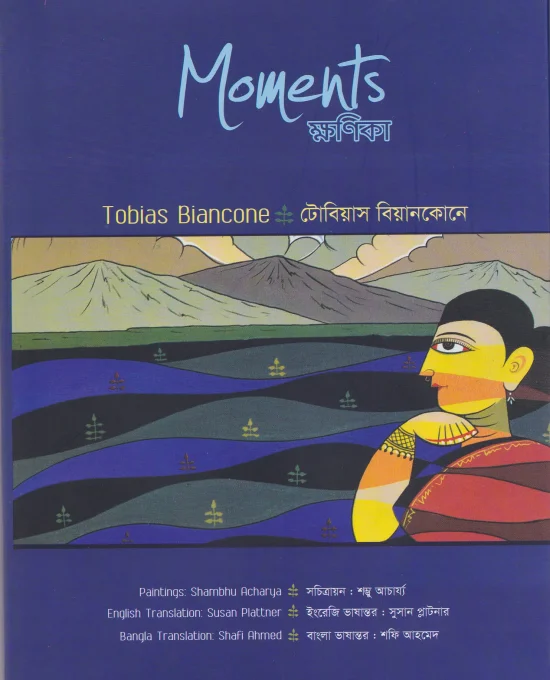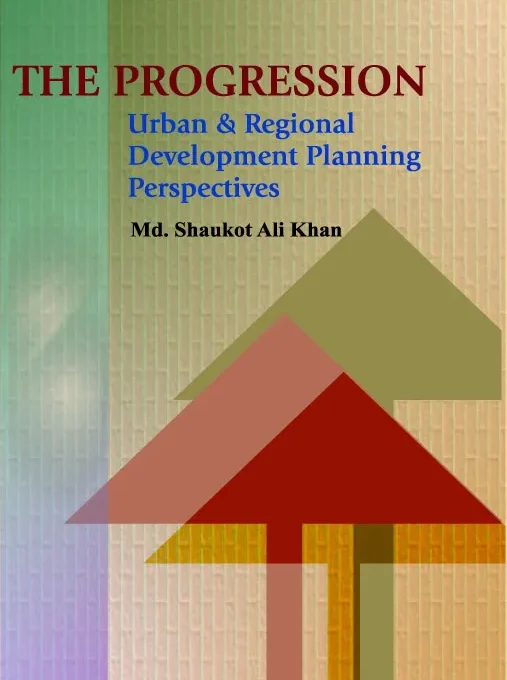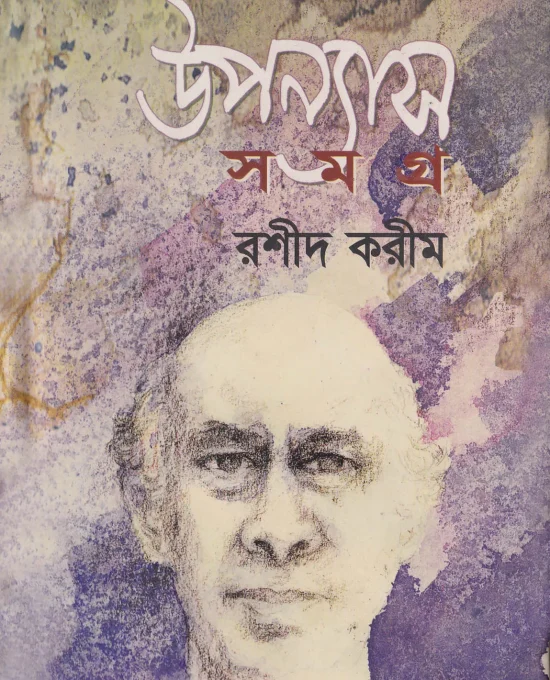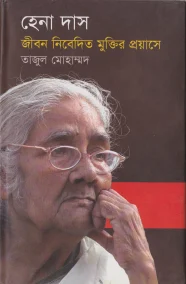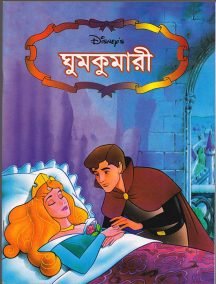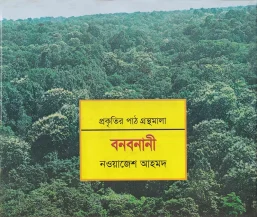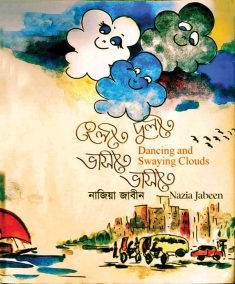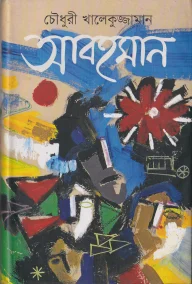-20%
”রশীদ করীম অমনিবাস – জন্মশতবার্ষিক প্রকাশনা”
Original price was: 850.00৳.687.50৳Current price is: 687.50৳.
রশীদ করীম (১৯২৫-২০১১) বাংলাদেশের অগ্রগণ্য কথাসাহিত্যিক, সৃজনে ছিলেন আজীবন নিমজ্জিত, বৃহত্তর পটভূমিকায় জীবনোপলব্ধি ও বড় ক্যানভাসে রূপায়ন ছিল অভীষ্ট। সাহিত্যাঙ্গণে তাঁর প্রবেশ ১৯৬১ সালে, কিছুটা পরিণত বয়সে, 'উত্তম পুরুষ' উপন্যাসের প্রকাশ চমকিত ও মুগ্ধ করেছিল সাহিত্যপ্রেমীদের। দেশভাগের আলোড়নময় সন্ধিক্ষণে হিন্দু- মুসলিম উভয় সম্প্রদায়ের অগ্রবর্তী অংশের আশা-আকাক্সক্ষা, স্বার্থ-দ্বন্দ্ব-সীমাবদ্ধতার মানবিক রূপায়ন সমকালীন সাহিত্যে যোগ করেছিল নতুন মাত্রা। স্বাধীন বাংলাদেশে সৃষ্টির প্রেরণায় উজ্জীবীত লেখক একে এক আমাদের উপহার দিলেন স্মরণীয় বিভিন্ন উপন্যাস ও গল্প। আরো লিখেছেন চিন্তাশীল প্রবন্ধ এবং সংক্ষিপ্ত এক জীবনকথা। তাঁর রচনায় বিশ শতকের বাঙালি জীবন, বিশেষভাবে জায়মান মুসলিম মধ্যবিত্তের স্বপ্ন, বাসনা ও সংগ্রামের রূপ-রূপান্তর খুঁজে পাওয়া যায় ব্যক্তির অবস্থান ও মানব-মানবীর প্রেম-অপ্রেম জীবন-সংগ্রামের দোলাচলে। একদিকে বিশাল সামাজিক অভিঘাত, অন্যদিকে মানবমনের গহিনের সুলুক-সন্ধান, উভয়ের সম্মিলন রশীদ করীমের রচনাকে দিয়েছে অনন্যতা। জন্মশতবর্ষে তাই রশীদ করীমের সাহিত্যসৃষ্টির পরিচয় দুই মলাটের মধ্যে ধারণের অভিপ্রায় নিয়ে নিবেদিত হয়েছে 'রশীদ করীম অমনিবাস'।
আশা করা যায় আজকের প্রজন্মের সাহিত্যানুরাগী পাঠকের কাছে তাঁর সৃজনসম্ভার নতুন তাৎপর্য ও আবেদন নিয়ে উদ্ভাসিত হবে, পাঠকচিত্ত করবে আলোড়িত, যোগাবে সাহিত্যপাঠের আনন্দ।
-20%
”রশীদ করীম অমনিবাস – জন্মশতবার্ষিক প্রকাশনা”
Original price was: 850.00৳.687.50৳Current price is: 687.50৳.
রশীদ করীম (১৯২৫-২০১১) বাংলাদেশের অগ্রগণ্য কথাসাহিত্যিক, সৃজনে ছিলেন আজীবন নিমজ্জিত, বৃহত্তর পটভূমিকায় জীবনোপলব্ধি ও বড় ক্যানভাসে রূপায়ন ছিল অভীষ্ট। সাহিত্যাঙ্গণে তাঁর প্রবেশ ১৯৬১ সালে, কিছুটা পরিণত বয়সে, 'উত্তম পুরুষ' উপন্যাসের প্রকাশ চমকিত ও মুগ্ধ করেছিল সাহিত্যপ্রেমীদের। দেশভাগের আলোড়নময় সন্ধিক্ষণে হিন্দু- মুসলিম উভয় সম্প্রদায়ের অগ্রবর্তী অংশের আশা-আকাক্সক্ষা, স্বার্থ-দ্বন্দ্ব-সীমাবদ্ধতার মানবিক রূপায়ন সমকালীন সাহিত্যে যোগ করেছিল নতুন মাত্রা। স্বাধীন বাংলাদেশে সৃষ্টির প্রেরণায় উজ্জীবীত লেখক একে এক আমাদের উপহার দিলেন স্মরণীয় বিভিন্ন উপন্যাস ও গল্প। আরো লিখেছেন চিন্তাশীল প্রবন্ধ এবং সংক্ষিপ্ত এক জীবনকথা। তাঁর রচনায় বিশ শতকের বাঙালি জীবন, বিশেষভাবে জায়মান মুসলিম মধ্যবিত্তের স্বপ্ন, বাসনা ও সংগ্রামের রূপ-রূপান্তর খুঁজে পাওয়া যায় ব্যক্তির অবস্থান ও মানব-মানবীর প্রেম-অপ্রেম জীবন-সংগ্রামের দোলাচলে। একদিকে বিশাল সামাজিক অভিঘাত, অন্যদিকে মানবমনের গহিনের সুলুক-সন্ধান, উভয়ের সম্মিলন রশীদ করীমের রচনাকে দিয়েছে অনন্যতা। জন্মশতবর্ষে তাই রশীদ করীমের সাহিত্যসৃষ্টির পরিচয় দুই মলাটের মধ্যে ধারণের অভিপ্রায় নিয়ে নিবেদিত হয়েছে 'রশীদ করীম অমনিবাস'।
আশা করা যায় আজকের প্রজন্মের সাহিত্যানুরাগী পাঠকের কাছে তাঁর সৃজনসম্ভার নতুন তাৎপর্য ও আবেদন নিয়ে উদ্ভাসিত হবে, পাঠকচিত্ত করবে আলোড়িত, যোগাবে সাহিত্যপাঠের আনন্দ।
-25%
Bangladesh 1971 : Dreadful Experience
Original price was: 900.00৳.675.00৳Current price is: 675.00৳.
Bangladesh went through dreadful experiences in 1971 when the Pakistan Army and their local collaborators committed the crime of genocide all over the land for nine months. The Bengali book 1971 : Dreadful Experiences, published in 1989, created big impact on the readers as it depicted the human aspect of the sufferings. The anthology included 50 narratives of atrocity committed in different parts of the country in various months. Few of the narratives were translated and published in the anthology “Genocides in the Twentieth Century”, but the international readers could not be reached because of the language barrier. The expatriate youths of Bangladesh came forward to meet the challenge and created a group to translate and edit the book. They wanted to give faces to the millions of people killed and tortured by presenting stories of their suffering to an international audience. The book of mass atrocities can be termed as Black Book of Genocide, difficult to read but essential to say ‘Never Again.
-25%
Bangladesh 1971 : Dreadful Experience
Original price was: 900.00৳.675.00৳Current price is: 675.00৳.
Bangladesh went through dreadful experiences in 1971 when the Pakistan Army and their local collaborators committed the crime of genocide all over the land for nine months. The Bengali book 1971 : Dreadful Experiences, published in 1989, created big impact on the readers as it depicted the human aspect of the sufferings. The anthology included 50 narratives of atrocity committed in different parts of the country in various months. Few of the narratives were translated and published in the anthology “Genocides in the Twentieth Century”, but the international readers could not be reached because of the language barrier. The expatriate youths of Bangladesh came forward to meet the challenge and created a group to translate and edit the book. They wanted to give faces to the millions of people killed and tortured by presenting stories of their suffering to an international audience. The book of mass atrocities can be termed as Black Book of Genocide, difficult to read but essential to say ‘Never Again.
-25%
Bangladesh Yesterday Today Tomorrow – Essays in Honour of Professor Sanat Kumar Saha
Original price was: 1,500.00৳.1,125.00৳Current price is: 1,125.00৳.
Bangladesh: Yesterday, Today and Tomorrow is a fitting tribute to the scholarly achievements of Professor Sanat Kumar Saha. It contains well researched, readable, multidisciplinary accounts and analyses of Bangladesh's development issues (historical, cultural, social and economic) and also pays attention to more general development issues. Topics are set in their broad contexts. This adds value to this unique volume. This festschrift will be profitable reading not only for audiences in Bangladesh but in the whole of South Asia and beyond. It is highly recommended. The editors are to be congratulated on their sterling effort and their empathy.
Clement Tisdell
Fellow of the Academy of the Social Sciences in Australia and Professor Emeritus, University of Queensland, Australia
The Editors
Mohammad Alauddin, Associate Professor of Economics, University of Queensland graduated from Rajshahi University and completed Ph.Ds in Economics from University of Newcastle and in Education, from University of Queensland. He has published in top development and environmental economics journals and books (Macmillan, 1991 and 1998; Edward Elgar, 2001).
Mustafa K Mujeri, Executive Director, Institute for Inclusive Finance and Development (InM) did his Ph.D. in Economics from McMaster University after graduation from Rajshahi University. He worked as Director General of BIDS and Chief Economist, Bangladesh Bank, among others. He has wide ranging research experience on development issues and published books and articles in national and international journals.
Dilip Kumar Nath, Professor of Economics, Department of Business Administration, Atish Dipankar University of Science and Technology graduated from Rajshahi University and obtained Ph.D from Moscow State University. He was a Professor of Economics at Rajshahi University and a Visiting Scholar at Queen Elizabeth House, Oxford.
-25%
Bangladesh Yesterday Today Tomorrow – Essays in Honour of Professor Sanat Kumar Saha
Original price was: 1,500.00৳.1,125.00৳Current price is: 1,125.00৳.
Bangladesh: Yesterday, Today and Tomorrow is a fitting tribute to the scholarly achievements of Professor Sanat Kumar Saha. It contains well researched, readable, multidisciplinary accounts and analyses of Bangladesh's development issues (historical, cultural, social and economic) and also pays attention to more general development issues. Topics are set in their broad contexts. This adds value to this unique volume. This festschrift will be profitable reading not only for audiences in Bangladesh but in the whole of South Asia and beyond. It is highly recommended. The editors are to be congratulated on their sterling effort and their empathy.
Clement Tisdell
Fellow of the Academy of the Social Sciences in Australia and Professor Emeritus, University of Queensland, Australia
The Editors
Mohammad Alauddin, Associate Professor of Economics, University of Queensland graduated from Rajshahi University and completed Ph.Ds in Economics from University of Newcastle and in Education, from University of Queensland. He has published in top development and environmental economics journals and books (Macmillan, 1991 and 1998; Edward Elgar, 2001).
Mustafa K Mujeri, Executive Director, Institute for Inclusive Finance and Development (InM) did his Ph.D. in Economics from McMaster University after graduation from Rajshahi University. He worked as Director General of BIDS and Chief Economist, Bangladesh Bank, among others. He has wide ranging research experience on development issues and published books and articles in national and international journals.
Dilip Kumar Nath, Professor of Economics, Department of Business Administration, Atish Dipankar University of Science and Technology graduated from Rajshahi University and obtained Ph.D from Moscow State University. He was a Professor of Economics at Rajshahi University and a Visiting Scholar at Queen Elizabeth House, Oxford.
-25%
Catalyst : In the Wake of Great Bhola Cyclone
Original price was: 900.00৳.675.00৳Current price is: 675.00৳.
The smell come first, then the tops of coconut palms : flouting on tiny stalks above the placid hay- at last the low mud bank with its horrcandans harden of decaying bodies. I had to run the dinghy down the coast for over a mile before I could find a spot to land without stepping an one of the luckless victims of the cyclone. I scrambled up the slippery bank, nearly retackling, and stood on a dirt mound that only last week had been a home. There before me was a beautiful, golden, flattened and utterly desolate land…
― Jon Rohde’s account of landing on Manpura, November 23, 1970
Catalyst is story of the most devastating cyclone in history, which struck one of the most overpopulated and defenseless places on earth. On November 12, 1970, a massive storm build up a twenty-foot high wall of water that surged with deadly force across the low-lying islands in the Bay of Bengal. The islanders, along with their lives tic, boats, possessions and any buildings not made of concrete, were flung into the raging wind and sea. Only the strongest survived. With an estimated half million deaths, the Great Bhola Cyclone stands as the worst in recorded history.
Drawing on original field notes, archival research, recollections of participants, interviews and memoirs, ‘Catalyst’ tells the true story of the response of a group of young friends to this unprecedented natural disaster, and to the subsequent conflict that led to the new nation of Bangladesh. A compelling tale about the choices that define us and shape our lives, ‘Catalyst’ illustrates how times of great calamity and confusion can become a cartography of human purpose.
-25%
Catalyst : In the Wake of Great Bhola Cyclone
Original price was: 900.00৳.675.00৳Current price is: 675.00৳.
The smell come first, then the tops of coconut palms : flouting on tiny stalks above the placid hay- at last the low mud bank with its horrcandans harden of decaying bodies. I had to run the dinghy down the coast for over a mile before I could find a spot to land without stepping an one of the luckless victims of the cyclone. I scrambled up the slippery bank, nearly retackling, and stood on a dirt mound that only last week had been a home. There before me was a beautiful, golden, flattened and utterly desolate land…
― Jon Rohde’s account of landing on Manpura, November 23, 1970
Catalyst is story of the most devastating cyclone in history, which struck one of the most overpopulated and defenseless places on earth. On November 12, 1970, a massive storm build up a twenty-foot high wall of water that surged with deadly force across the low-lying islands in the Bay of Bengal. The islanders, along with their lives tic, boats, possessions and any buildings not made of concrete, were flung into the raging wind and sea. Only the strongest survived. With an estimated half million deaths, the Great Bhola Cyclone stands as the worst in recorded history.
Drawing on original field notes, archival research, recollections of participants, interviews and memoirs, ‘Catalyst’ tells the true story of the response of a group of young friends to this unprecedented natural disaster, and to the subsequent conflict that led to the new nation of Bangladesh. A compelling tale about the choices that define us and shape our lives, ‘Catalyst’ illustrates how times of great calamity and confusion can become a cartography of human purpose.
-25%
CLIMATE VARIABILITY-Issues and Perspectives for Bangladesh
Original price was: 900.00৳.675.00৳Current price is: 675.00৳.
This book is for those who have interest in and concern about what is happening to the climate of Bangladesh. They would like to find out whether Bangladesh is going through climate change or climate variability, whether such phenomena is unprecedented, and whether such phenomena is likely to continue into an unknown future. Does any extreme weather event mean either climate change or climate variability? What exactly do the terms weather, climate, climate change, climate variability, and climate system mean when national and international professionals talk about them and warn that Bangladesh is a victim of Climate Change? What can we do to prevent our weather and climate getting worse or help them getting better? What is IPCC, and why was it formed, for what purposes, with what mandate? What is ClimateGate that we hear about? What is Kyoto Protocol? What issues are important from Bangladesh perspectives? This book, as a sequel to our earlier book titled Climate Change: Issues and Perspectives for Bangladesh (published 2011), tries to provide answers to some of these and other pertinent questions in as simple terms as possible, and gives a Bangladesh perspective to the global scenario. The articles selected were written by professionals who have contributed to the appreciable volume of scientific literature that has grown over the last 30 years or soon the relevant fields here in Bangladesh. The overall findings are unmistakably clear: both the weather and the climate of Bangladesh is variable. The climate is marked by seasonality and extreme events. The causes are mostly natural. It would take long term careful research with scientific objectivity based on our national data to determine the nature and causes of changes, if any, in our climate here in Bangladesh. Climate related measures, such as adaptation, mitigation and risk reduction plans, programs and activities would be better tuned if the attention is on the challenges of the extreme climatic events. Meanwhile, the pace of economic development, based on agriculture, fisheries and livestock, as well as on industry, trade and transport, must go ahead impeded, keeping the considerations of environmental sustainability in one planning and budgeting. Our continued focus on the present certain problems and issues and more research effort on issues of climate in an uncertain future would be better productive to the development planning of Bangladesh.
-25%
CLIMATE VARIABILITY-Issues and Perspectives for Bangladesh
Original price was: 900.00৳.675.00৳Current price is: 675.00৳.
This book is for those who have interest in and concern about what is happening to the climate of Bangladesh. They would like to find out whether Bangladesh is going through climate change or climate variability, whether such phenomena is unprecedented, and whether such phenomena is likely to continue into an unknown future. Does any extreme weather event mean either climate change or climate variability? What exactly do the terms weather, climate, climate change, climate variability, and climate system mean when national and international professionals talk about them and warn that Bangladesh is a victim of Climate Change? What can we do to prevent our weather and climate getting worse or help them getting better? What is IPCC, and why was it formed, for what purposes, with what mandate? What is ClimateGate that we hear about? What is Kyoto Protocol? What issues are important from Bangladesh perspectives? This book, as a sequel to our earlier book titled Climate Change: Issues and Perspectives for Bangladesh (published 2011), tries to provide answers to some of these and other pertinent questions in as simple terms as possible, and gives a Bangladesh perspective to the global scenario. The articles selected were written by professionals who have contributed to the appreciable volume of scientific literature that has grown over the last 30 years or soon the relevant fields here in Bangladesh. The overall findings are unmistakably clear: both the weather and the climate of Bangladesh is variable. The climate is marked by seasonality and extreme events. The causes are mostly natural. It would take long term careful research with scientific objectivity based on our national data to determine the nature and causes of changes, if any, in our climate here in Bangladesh. Climate related measures, such as adaptation, mitigation and risk reduction plans, programs and activities would be better tuned if the attention is on the challenges of the extreme climatic events. Meanwhile, the pace of economic development, based on agriculture, fisheries and livestock, as well as on industry, trade and transport, must go ahead impeded, keeping the considerations of environmental sustainability in one planning and budgeting. Our continued focus on the present certain problems and issues and more research effort on issues of climate in an uncertain future would be better productive to the development planning of Bangladesh.
-25%
Close to my Heart : A Daughter’s Tribute to Her Father
Original price was: 1,000.00৳.750.00৳Current price is: 750.00৳.
Close to My Heart - A Daughter's Tribute to her Father by Dr. Khurshid Akhter Hossain is the English translation of Janak Swarney Attoja by Piary Akhter. Both the authors are daughters of the late Mr. Golam Mobarak whose life journey has been soulfully described here.
This book is a tribute to a great man who left a lasting impression on the lives of his children and grandchildren. The life story of Mr. Golam Mobarak can be easily relatable to many middle-class, educated families as they faced the trials and tribulations of a challenging environment during the partition of the Indian sub-continent in 1947. He demonstrated tremendous vision and courage to navigate through a difficult time and establish himself as a pioneer in a newly-formed nation, thus, making a pathway for his next generation.
The book traces the entire journey of Mr. Golam Mobarak from his humble beginnings in Midnapore, West Bengal, to the Presidency College in Calcutta, and all the way to Dhaka, Bangladesh where he rose to the position of a Labor Commissioner, and later became a trail blazer as a law practitioner. The book is a memoir by his daughter and serves as both a personal and social history of life during the pre and post partition of the Indian sub-continent.
-25%
Close to my Heart : A Daughter’s Tribute to Her Father
Original price was: 1,000.00৳.750.00৳Current price is: 750.00৳.
Close to My Heart - A Daughter's Tribute to her Father by Dr. Khurshid Akhter Hossain is the English translation of Janak Swarney Attoja by Piary Akhter. Both the authors are daughters of the late Mr. Golam Mobarak whose life journey has been soulfully described here.
This book is a tribute to a great man who left a lasting impression on the lives of his children and grandchildren. The life story of Mr. Golam Mobarak can be easily relatable to many middle-class, educated families as they faced the trials and tribulations of a challenging environment during the partition of the Indian sub-continent in 1947. He demonstrated tremendous vision and courage to navigate through a difficult time and establish himself as a pioneer in a newly-formed nation, thus, making a pathway for his next generation.
The book traces the entire journey of Mr. Golam Mobarak from his humble beginnings in Midnapore, West Bengal, to the Presidency College in Calcutta, and all the way to Dhaka, Bangladesh where he rose to the position of a Labor Commissioner, and later became a trail blazer as a law practitioner. The book is a memoir by his daughter and serves as both a personal and social history of life during the pre and post partition of the Indian sub-continent.
-25%
Early Urban Centres in Bangladesh – Ann Archaeological Study- 3rd Century B.C. to mid 13th Century A.D.
Original price was: 1,250.00৳.937.50৳Current price is: 937.50৳.
-
-25%
Early Urban Centres in Bangladesh – Ann Archaeological Study- 3rd Century B.C. to mid 13th Century A.D.
Original price was: 1,250.00৳.937.50৳Current price is: 937.50৳.
-
-25%
International Crimes Tribunal-1 (ICT-1) Judgment The Case Of R P Shaha, Bhabani Prasad (ROBI) and Others
Original price was: 1,500.00৳.1,125.00৳Current price is: 1,125.00৳.
RP Shaha
– Biography
Born in a lower middle-class family, Ranada Prasad Shaha popularly known as R P Shaha rose to great heights, creating a huge business empire only to give away all his worldly possessions for the welfare of the poor and needy. He was born at his maternal uncle’s village home at Savar on 15 Nov 1896 to Debendra Podder and Kumudini Devi.
The young Ranada was extremely attached to his mother. His mother’s sudden death from post-natal tetanus when he was 7, turned his whole world upside down. This brought home to him 2 irrevocable facts: The poor quality and non-availability of medical services and the sorry plight of women in the then social hierarchy. Yearning motherly love and affection he ran away from home and finally ended up in Calcutta (Kalkata). He survived by doing any honest work he could find. Many a day he went to sleep hungry. One day, while he was selling newspapers in a rail station, a child fell onto the railway tracks. A crowd gathered, but no one did anything. Ranada immediately jumped onto the railway track, saving the child just before the train approached.
Later, he became involved with the Swadeshi Movement and got into trouble with the law enforcement agencies. He even spent a short time in jail. In the meantime, WW1 started and young Ranada enlisted in the British Army as a medic. His unit, the Ambulance Corps maintained a hospital in Baghdad to treat the wounded soldiers. This hospital caught fire when a nearby magazine exploded. Risking his life Ranada saved around 20 wounded soldiers from the blazing inferno. This act of bravery resulted in his commanding
officer Captain Cook’s entry in his service book, “. ….On the occasion of the magazine explosion near the hospital, he remained cool and worked hard being one of the last to leave the hospital.” On 26 Sep 1916 Ranada returned to a hero’s welcome in Calcutta. He then decided to join the Bengali Double Company which later became the 49th Bengal Regiment. There R P Shaha received his commission as a Viceroy’s Commissioned Officer. On 30 Aug 1920 his regiment was decommissioned. After a few years in the Railways, he decided to strike out on his own. Thus, began another chapter in his life. He started a small coal shop in Calcutta, supplying coal to both households and businesses. Through hard work, diligence and good management Ranada soon became one of the leading coal merchants in Calcutta. He also diversified into other businesses, including a river transport company (later to be named Bengal River Service).
Ranada now had the resources to pursue his dream. He started a sm dispensary in his ancestral village of Mirzapur which grew into a hosp (named after his mother Kumudini). He also set up the residential girls’ sc named Bharateswari Homes. Lord R G Casey, the then Governor of Bengal came all the way from Calcutta to inaugurate Kumudini Hospital on 27 July 1944. In his inaugural speech Lord Casey stated, “Some of you may wonder why I should take such close personal interest in a hospital which happens to be situated in a part of Bengal never before visited by a Governor of the Province. My answer is simple: I feel this hospital affords a high example of what can be done when the initiative, enterprise and public spirit of one man is directed towards the welfare and wellbeing of the community.” After the ceremony, R P Shaha handed him a cheque amounting to Rs 2,50,000/- as his contribution to Red Cross Appeal Fund created to look after the wounded soldiers of WW2.
Today, 85 years after its creation, Kumudini Hospital has evolved into a 1050 bed general hospital providing high quality and almost free medical care. Mr Shaha also established Kumudini Women’s College in Tangail and Devendra College in Manikganj.
Huseyn Shaheed Suhrawardy, the former Prime Minister of Pakistan on a visit to Kumudini Complex at Mirzapur in the mid-1950s wrote in the visitor’s book:
“A poor man became a millionaire, and the millionaire voluntarily became a poor man, spending his all in the service of humanity, for the suffering and the distressed, for the furtherance of education, for rendering a service to the state, which the state itself has not undertaken. But is the Rai Bahadur poor; he is rich in the esteem, in the affection, in the love of a grateful people; having given all his worldly possessions, he has obtained more than those who were his compeers. May that state and the people he has served so well give him that recognition which is his due, and not destroy the great institution he has built with such love and devotion.”
In a cruel twist of fate, this great man along with his son and successor Bhabani Prasad Shaha were abducted by the Pakistan Army and the Razakars on 7 May 1971. They never returned.
Mr Shaha did not believe that he was doing charity to anyone. To him Kumudini was no ordinary institution. It was an embodiment of his mother, of the shelter and care that he was deprived of. Hence its motto: “Kumudini Cares”.
-25%
International Crimes Tribunal-1 (ICT-1) Judgment The Case Of R P Shaha, Bhabani Prasad (ROBI) and Others
Original price was: 1,500.00৳.1,125.00৳Current price is: 1,125.00৳.
RP Shaha
– Biography
Born in a lower middle-class family, Ranada Prasad Shaha popularly known as R P Shaha rose to great heights, creating a huge business empire only to give away all his worldly possessions for the welfare of the poor and needy. He was born at his maternal uncle’s village home at Savar on 15 Nov 1896 to Debendra Podder and Kumudini Devi.
The young Ranada was extremely attached to his mother. His mother’s sudden death from post-natal tetanus when he was 7, turned his whole world upside down. This brought home to him 2 irrevocable facts: The poor quality and non-availability of medical services and the sorry plight of women in the then social hierarchy. Yearning motherly love and affection he ran away from home and finally ended up in Calcutta (Kalkata). He survived by doing any honest work he could find. Many a day he went to sleep hungry. One day, while he was selling newspapers in a rail station, a child fell onto the railway tracks. A crowd gathered, but no one did anything. Ranada immediately jumped onto the railway track, saving the child just before the train approached.
Later, he became involved with the Swadeshi Movement and got into trouble with the law enforcement agencies. He even spent a short time in jail. In the meantime, WW1 started and young Ranada enlisted in the British Army as a medic. His unit, the Ambulance Corps maintained a hospital in Baghdad to treat the wounded soldiers. This hospital caught fire when a nearby magazine exploded. Risking his life Ranada saved around 20 wounded soldiers from the blazing inferno. This act of bravery resulted in his commanding
officer Captain Cook’s entry in his service book, “. ….On the occasion of the magazine explosion near the hospital, he remained cool and worked hard being one of the last to leave the hospital.” On 26 Sep 1916 Ranada returned to a hero’s welcome in Calcutta. He then decided to join the Bengali Double Company which later became the 49th Bengal Regiment. There R P Shaha received his commission as a Viceroy’s Commissioned Officer. On 30 Aug 1920 his regiment was decommissioned. After a few years in the Railways, he decided to strike out on his own. Thus, began another chapter in his life. He started a small coal shop in Calcutta, supplying coal to both households and businesses. Through hard work, diligence and good management Ranada soon became one of the leading coal merchants in Calcutta. He also diversified into other businesses, including a river transport company (later to be named Bengal River Service).
Ranada now had the resources to pursue his dream. He started a sm dispensary in his ancestral village of Mirzapur which grew into a hosp (named after his mother Kumudini). He also set up the residential girls’ sc named Bharateswari Homes. Lord R G Casey, the then Governor of Bengal came all the way from Calcutta to inaugurate Kumudini Hospital on 27 July 1944. In his inaugural speech Lord Casey stated, “Some of you may wonder why I should take such close personal interest in a hospital which happens to be situated in a part of Bengal never before visited by a Governor of the Province. My answer is simple: I feel this hospital affords a high example of what can be done when the initiative, enterprise and public spirit of one man is directed towards the welfare and wellbeing of the community.” After the ceremony, R P Shaha handed him a cheque amounting to Rs 2,50,000/- as his contribution to Red Cross Appeal Fund created to look after the wounded soldiers of WW2.
Today, 85 years after its creation, Kumudini Hospital has evolved into a 1050 bed general hospital providing high quality and almost free medical care. Mr Shaha also established Kumudini Women’s College in Tangail and Devendra College in Manikganj.
Huseyn Shaheed Suhrawardy, the former Prime Minister of Pakistan on a visit to Kumudini Complex at Mirzapur in the mid-1950s wrote in the visitor’s book:
“A poor man became a millionaire, and the millionaire voluntarily became a poor man, spending his all in the service of humanity, for the suffering and the distressed, for the furtherance of education, for rendering a service to the state, which the state itself has not undertaken. But is the Rai Bahadur poor; he is rich in the esteem, in the affection, in the love of a grateful people; having given all his worldly possessions, he has obtained more than those who were his compeers. May that state and the people he has served so well give him that recognition which is his due, and not destroy the great institution he has built with such love and devotion.”
In a cruel twist of fate, this great man along with his son and successor Bhabani Prasad Shaha were abducted by the Pakistan Army and the Razakars on 7 May 1971. They never returned.
Mr Shaha did not believe that he was doing charity to anyone. To him Kumudini was no ordinary institution. It was an embodiment of his mother, of the shelter and care that he was deprived of. Hence its motto: “Kumudini Cares”.
-25%
-25%
The Progression Urban and Regional Development Planning Perspective
Original price was: 1,500.00৳.1,125.00৳Current price is: 1,125.00৳.
-
-25%
The Progression Urban and Regional Development Planning Perspective
Original price was: 1,500.00৳.1,125.00৳Current price is: 1,125.00৳.
-
-25%
The Progression Urban and Regional Development Planning Perspective
Original price was: 1,500.00৳.1,125.00৳Current price is: 1,125.00৳.
-
-25%
The Progression Urban and Regional Development Planning Perspective
Original price was: 1,500.00৳.1,125.00৳Current price is: 1,125.00৳.
-
-25%
আত্মস্মৃতি
Original price was: 1,200.00৳.900.00৳Current price is: 900.00৳.
কথাসাহিত্যিক, সাংবাদিক, সমাজবিশ্লেষক এবং কল্যাণব্রতী জীবনাদর্শের বাহক চিরসংগ্রামী আবু জাফর শামসুদ্দীন বাংলাদেশের বুদ্ধিবৃত্তিক জগতের এক জ্যোতির্ময় ব্যক্তিত্ব। স্বদেশের মাটির ওপর দৃঢ় পায়ে দাঁড়িয়ে বিশ্ববীক্ষণ মননে ধারণ করে তিনি সমকালীন জগৎ ও জীবনকে বুঝতে যেমন সচেষ্ট হয়েছেন, তেমনি বাস্তবতার বিবিধ বঞ্চনা ও পীড়নের বিরুদ্ধে সর্বজনের মুক্তিপথ রচনার সাধনায় নিরলসভাবে ব্রতী ছিলেন। গ্রামীণ পটভূমিকা থেকে তাঁর এক আশ্চর্য উত্থান, চল্লিশের দশকের কলকাতায় উদারবাদী মুসলিম সমাজের সারস্বত বৃত্তে তাঁর অধিষ্ঠান এবং সাতচল্লিশ পরবর্তীকালে ঢাকায় স্থিত হয়ে পূর্ববাংলার সাহিত্যিক-সাংস্কৃতিক-রাজনৈতিক জীবনের সঙ্গে সম্পৃক্ততার মধ্য দিয়ে তাঁর অব্যাহত মননচর্চা ও কর্মসাধনা তাঁকে যুগিয়েছে উত্তাল ও পরিবর্তনময় সময়ের লিপিকার হওয়ার বিরল দক্ষতা। পদ্মা মেঘনা যমুনা, ভাওয়ালগড়ের উপাখ্যান কিংবা দেয়াল-এর মতো ঐতিহাসিক উপন্যাস রচনার মাধ্যমে তিনি সময়ের শিল্পিত ভাষ্য রেখে গেছেন। তুলনীয় আরেক মহাকাব্যিক রচনা ইতিপূর্বে দুই খণ্ডে প্রকাশিত তাঁর আত্মস্মৃতি, নতুন মুদ্রণে যা পুনঃপ্রকাশিত হলো একত্রে বর্ধিত ও অখণ্ড সংস্করণরূপে। বহুমাত্রিক এই গ্রন্থের তাৎপর্য ও বৈশিষ্ট্য স্বল্পপরিসরে তুলে ধরা দুরূহ, তবে এটুকু নির্দ্বিধায় বলা যায় বর্তমান গ্রন্থ সকল শ্রেণীর পাঠকের আত্মোপলব্ধি বিপুলভাবে প্রসারিত করবে, জীবন ও সময়ের চলমান ছবি উন্মোচিত হবে উপন্যাসের সজীবতা ও সমাজতাত্ত্বিকের উপলব্ধি নিয়ে। এমন গ্রন্থপাঠ সব পাঠকের জন্য এক অবিস্মরণীয় অভিজ্ঞতা।
-25%
আত্মস্মৃতি
Original price was: 1,200.00৳.900.00৳Current price is: 900.00৳.
কথাসাহিত্যিক, সাংবাদিক, সমাজবিশ্লেষক এবং কল্যাণব্রতী জীবনাদর্শের বাহক চিরসংগ্রামী আবু জাফর শামসুদ্দীন বাংলাদেশের বুদ্ধিবৃত্তিক জগতের এক জ্যোতির্ময় ব্যক্তিত্ব। স্বদেশের মাটির ওপর দৃঢ় পায়ে দাঁড়িয়ে বিশ্ববীক্ষণ মননে ধারণ করে তিনি সমকালীন জগৎ ও জীবনকে বুঝতে যেমন সচেষ্ট হয়েছেন, তেমনি বাস্তবতার বিবিধ বঞ্চনা ও পীড়নের বিরুদ্ধে সর্বজনের মুক্তিপথ রচনার সাধনায় নিরলসভাবে ব্রতী ছিলেন। গ্রামীণ পটভূমিকা থেকে তাঁর এক আশ্চর্য উত্থান, চল্লিশের দশকের কলকাতায় উদারবাদী মুসলিম সমাজের সারস্বত বৃত্তে তাঁর অধিষ্ঠান এবং সাতচল্লিশ পরবর্তীকালে ঢাকায় স্থিত হয়ে পূর্ববাংলার সাহিত্যিক-সাংস্কৃতিক-রাজনৈতিক জীবনের সঙ্গে সম্পৃক্ততার মধ্য দিয়ে তাঁর অব্যাহত মননচর্চা ও কর্মসাধনা তাঁকে যুগিয়েছে উত্তাল ও পরিবর্তনময় সময়ের লিপিকার হওয়ার বিরল দক্ষতা। পদ্মা মেঘনা যমুনা, ভাওয়ালগড়ের উপাখ্যান কিংবা দেয়াল-এর মতো ঐতিহাসিক উপন্যাস রচনার মাধ্যমে তিনি সময়ের শিল্পিত ভাষ্য রেখে গেছেন। তুলনীয় আরেক মহাকাব্যিক রচনা ইতিপূর্বে দুই খণ্ডে প্রকাশিত তাঁর আত্মস্মৃতি, নতুন মুদ্রণে যা পুনঃপ্রকাশিত হলো একত্রে বর্ধিত ও অখণ্ড সংস্করণরূপে। বহুমাত্রিক এই গ্রন্থের তাৎপর্য ও বৈশিষ্ট্য স্বল্পপরিসরে তুলে ধরা দুরূহ, তবে এটুকু নির্দ্বিধায় বলা যায় বর্তমান গ্রন্থ সকল শ্রেণীর পাঠকের আত্মোপলব্ধি বিপুলভাবে প্রসারিত করবে, জীবন ও সময়ের চলমান ছবি উন্মোচিত হবে উপন্যাসের সজীবতা ও সমাজতাত্ত্বিকের উপলব্ধি নিয়ে। এমন গ্রন্থপাঠ সব পাঠকের জন্য এক অবিস্মরণীয় অভিজ্ঞতা।
-25%
উপন্যাস সমগ্র
Original price was: 1,200.00৳.900.00৳Current price is: 900.00৳.
উপন্যাস লিখেছেন তিনি, ১৯৬১ সালে প্রকাশিত হয় ‘উত্তম পরুষ’ এবং ১৯৯৩ সালে সর্বশেষ উপন্যাস ‘লাঞ্চ বক্স’। রশীদ করীমের জন্ম ও বেড়ে-ওঠা অবিভক্ত ভারতের প্রধান নগরী কলকাতায় এক অভিজাত পরিমণ্ডলে। দেশভাগের পর ঢাকায় এসে যোগ দেন বহুজাতিক প্রতিষ্ঠানের উচ্চপদে। ধর্মান্ধ চেতনার ঘোর কাটিয়ে জাতিস্বাতন্ত্র্যের উন্মেষ ও পরবর্তী উত্তালতা- সবকিছুর সাক্ষী তিনি। বৃহত্তর এই পটভূমিকায় দেখেছেন মানবিক সম্পর্কের বিবর্তন, নির্মোহভাবে বিচার করেছেন ব্যক্তিসত্তার আলো-অাঁধারির জটিল খেলা। তবে এসবের উপস্থাপনে তিনি সবসময়ে দেখিয়েছেন আশ্চর্য পরিমিতি ও শিল্পবোধ। প্রতিটি উপন্যাসই লিখেছেন দীর্ঘ সময় নিয়ে, উপলব্ধির গভীরে ডুব দিয়ে যাপিতজীবনের অভিজ্ঞতার নির্যাস তুলে আনতে। তাঁর উপন্যাসের বৃত্ত নাগরিক এবং নাগরিক সমাজের মধ্য ও উপরমহলের বাসিন্দাদের জীবনাভিজ্ঞতা। এই পরিসরটি তাঁর একান্ত চেনা এবং এমনি পটভূমিকায় নরনারীর সম্পর্কের আর্তি, আনন্দ-বেদনা, মোহ-বাসনা সবকিছু তিনি যে অন্তরঙ্গ কথকতার ভঙ্গিতে তুলে আনেন সেটা একান্ত দুর্লভ। যে জীবনকে উপন্যাসের শিল্পিতরূপে তিনি উপস্থাপন করতে চেয়েছেন সেজন্য উপযুক্ত এক ভাষাভঙ্গিও তৈরি করে নিয়েছেন যা ঝকঝকে ও আধুনিক, শাণিত তরবারির মতো প্রচলবদ্ধতার বৃত্ত ছিন্ন করে দেয়। কাহিনীবিন্যাসে পাঠক খুঁজে পাবেন সমাজবাস্তবতার অনুপম প্রতিফলন, কখনো খুব উচ্চকিত না হয়েও যা সমাজবদলের অন্তঃসলিলা রূপ দৃষ্টিপটে মেলে ধরে। রশীদ করীম আদর্শকে বাস্তবায়িত অথবা বাস্তবকে আদর্শায়িত করেন না। তিনি পরিবেশের কাছে সত্যনিষ্ঠ থেকেছেন। লেখক বিশ শতকের বাংলা উপন্যাসের গতিধারার এক অনন্য রূপকার, সাহিত্যকে যিনি করে তুলেছেন মানুষ, জীবন ও সমাজকে নিবিড়ভাবে জানবার ও বুঝবার অবলম্বন, আর এ-কারণেই অপরিহার্য হয়েছে যার রচনাপাঠ। দুই মলাটের মধ্যে রশীদ করীমের সমগ্র উপন্যাস উপস্থাপন করতে পেরে বর্তমান প্রকাশক তাই বিশেষ গর্ববোধ করছেন।
-25%
উপন্যাস সমগ্র
Original price was: 1,200.00৳.900.00৳Current price is: 900.00৳.
উপন্যাস লিখেছেন তিনি, ১৯৬১ সালে প্রকাশিত হয় ‘উত্তম পরুষ’ এবং ১৯৯৩ সালে সর্বশেষ উপন্যাস ‘লাঞ্চ বক্স’। রশীদ করীমের জন্ম ও বেড়ে-ওঠা অবিভক্ত ভারতের প্রধান নগরী কলকাতায় এক অভিজাত পরিমণ্ডলে। দেশভাগের পর ঢাকায় এসে যোগ দেন বহুজাতিক প্রতিষ্ঠানের উচ্চপদে। ধর্মান্ধ চেতনার ঘোর কাটিয়ে জাতিস্বাতন্ত্র্যের উন্মেষ ও পরবর্তী উত্তালতা- সবকিছুর সাক্ষী তিনি। বৃহত্তর এই পটভূমিকায় দেখেছেন মানবিক সম্পর্কের বিবর্তন, নির্মোহভাবে বিচার করেছেন ব্যক্তিসত্তার আলো-অাঁধারির জটিল খেলা। তবে এসবের উপস্থাপনে তিনি সবসময়ে দেখিয়েছেন আশ্চর্য পরিমিতি ও শিল্পবোধ। প্রতিটি উপন্যাসই লিখেছেন দীর্ঘ সময় নিয়ে, উপলব্ধির গভীরে ডুব দিয়ে যাপিতজীবনের অভিজ্ঞতার নির্যাস তুলে আনতে। তাঁর উপন্যাসের বৃত্ত নাগরিক এবং নাগরিক সমাজের মধ্য ও উপরমহলের বাসিন্দাদের জীবনাভিজ্ঞতা। এই পরিসরটি তাঁর একান্ত চেনা এবং এমনি পটভূমিকায় নরনারীর সম্পর্কের আর্তি, আনন্দ-বেদনা, মোহ-বাসনা সবকিছু তিনি যে অন্তরঙ্গ কথকতার ভঙ্গিতে তুলে আনেন সেটা একান্ত দুর্লভ। যে জীবনকে উপন্যাসের শিল্পিতরূপে তিনি উপস্থাপন করতে চেয়েছেন সেজন্য উপযুক্ত এক ভাষাভঙ্গিও তৈরি করে নিয়েছেন যা ঝকঝকে ও আধুনিক, শাণিত তরবারির মতো প্রচলবদ্ধতার বৃত্ত ছিন্ন করে দেয়। কাহিনীবিন্যাসে পাঠক খুঁজে পাবেন সমাজবাস্তবতার অনুপম প্রতিফলন, কখনো খুব উচ্চকিত না হয়েও যা সমাজবদলের অন্তঃসলিলা রূপ দৃষ্টিপটে মেলে ধরে। রশীদ করীম আদর্শকে বাস্তবায়িত অথবা বাস্তবকে আদর্শায়িত করেন না। তিনি পরিবেশের কাছে সত্যনিষ্ঠ থেকেছেন। লেখক বিশ শতকের বাংলা উপন্যাসের গতিধারার এক অনন্য রূপকার, সাহিত্যকে যিনি করে তুলেছেন মানুষ, জীবন ও সমাজকে নিবিড়ভাবে জানবার ও বুঝবার অবলম্বন, আর এ-কারণেই অপরিহার্য হয়েছে যার রচনাপাঠ। দুই মলাটের মধ্যে রশীদ করীমের সমগ্র উপন্যাস উপস্থাপন করতে পেরে বর্তমান প্রকাশক তাই বিশেষ গর্ববোধ করছেন।
-25%
এ হ্যান্ডবুক অন : গ্লুকোমা – A Handbook on Glaucoma (in Bengali)
Original price was: 1,000.00৳.750.00৳Current price is: 750.00৳.
দেশ-বিদেশের মেডিক্যাল জার্নালে মুকোমার ওপর গবেষণামূলক প্রবন্ধ প্রকাশিত হয়েছে। এছাড়া গ্লুকোমা সম্পর্কে সচেতনতামূলক বহু লেখা বিভিন্ন জাতীয় পত্রিকা, ম্যাগাজিনসহ স্থানীয় পত্রিকায় প্রকাশিত হয়েছে। বিগত ২০ বছরের পেশাগত জীবনে শতাধিক চক্ষুশিবিরে বিনামূল্যে সেবা প্রদান করেন এবং সাধ্যমতো ওষুধ বিতরণ করেন। সীমিত সামর্থ্যের মাঝেও সমাজের সকল স্তরের মানুষের দ্বারে তাদের প্রাপ্য সেবাটুকু পৌছে দেয়ার আন্তরিক প্রয়াসের স্বীকৃতি হিসেবে 'রবীন্দ্র সম্মাননা-২০০৭', 'শেরেবাংলা এ কে ফজলুল হক সাইনিং পারসোনালিটি অ্যাওয়ার্ড-২০১২' এবং নির্ণয় স্বর্ণপদক ২০১২' অর্জন করেন। তিনি রাশিয়া, ইউক্রেন, বেলারুশিয়া, লাতভিয়া, জর্জিয়া, তৎকালীন পূর্বজার্মানি, পশ্চিম জার্মানি, ইংল্যান্ড ও ভারত ভ্রমণ করেন। বিভিন্ন সামাজিক সংগঠনের সাথে সম্পৃক্ত রয়েছেন। তিনি দেশ-বিদেশের বিভিন্ন চক্ষুচিকিৎসক সমিতির আজীবন সদস্য।
-25%
এ হ্যান্ডবুক অন : গ্লুকোমা – A Handbook on Glaucoma (in Bengali)
Original price was: 1,000.00৳.750.00৳Current price is: 750.00৳.
দেশ-বিদেশের মেডিক্যাল জার্নালে মুকোমার ওপর গবেষণামূলক প্রবন্ধ প্রকাশিত হয়েছে। এছাড়া গ্লুকোমা সম্পর্কে সচেতনতামূলক বহু লেখা বিভিন্ন জাতীয় পত্রিকা, ম্যাগাজিনসহ স্থানীয় পত্রিকায় প্রকাশিত হয়েছে। বিগত ২০ বছরের পেশাগত জীবনে শতাধিক চক্ষুশিবিরে বিনামূল্যে সেবা প্রদান করেন এবং সাধ্যমতো ওষুধ বিতরণ করেন। সীমিত সামর্থ্যের মাঝেও সমাজের সকল স্তরের মানুষের দ্বারে তাদের প্রাপ্য সেবাটুকু পৌছে দেয়ার আন্তরিক প্রয়াসের স্বীকৃতি হিসেবে 'রবীন্দ্র সম্মাননা-২০০৭', 'শেরেবাংলা এ কে ফজলুল হক সাইনিং পারসোনালিটি অ্যাওয়ার্ড-২০১২' এবং নির্ণয় স্বর্ণপদক ২০১২' অর্জন করেন। তিনি রাশিয়া, ইউক্রেন, বেলারুশিয়া, লাতভিয়া, জর্জিয়া, তৎকালীন পূর্বজার্মানি, পশ্চিম জার্মানি, ইংল্যান্ড ও ভারত ভ্রমণ করেন। বিভিন্ন সামাজিক সংগঠনের সাথে সম্পৃক্ত রয়েছেন। তিনি দেশ-বিদেশের বিভিন্ন চক্ষুচিকিৎসক সমিতির আজীবন সদস্য।
-25%
কতক কড়ি, কতক কোমল A Shade Sharp, A Shade Flat
Original price was: 1,000.00৳.750.00৳Current price is: 750.00৳.
-
-25%
কতক কড়ি, কতক কোমল A Shade Sharp, A Shade Flat
Original price was: 1,000.00৳.750.00৳Current price is: 750.00৳.
-
-25%
কাল নিরবধি
Original price was: 900.00৳.675.00৳Current price is: 675.00৳.
আনিসুজ্জামান (জন্ম ১৯৩৭) বলেছেন নিজের জীবনের কথা, পরিপার্শ্বের সঙ্গে ক্রিয়া-প্রতিক্রিয়ায় তাঁর বেড়ে-ওঠা, শিক্ষাগ্রহণ ও শিক্ষাদান-পর্বের কাহিনী, ব্যক্তিজীবন, পরিবার, বন্ধুবৃত্ত, শিক্ষকমণ্ডলী ছাপিয়ে যা পৌছেঁ যায় বৃহত্তর সামাজিক-রাজনৈতিক-সাংস্কৃতিক ভূমিতে। এই সুবাদে ফুটে ওঠে সময় ও সমাজের পরিবর্তনময়তার ছবি, কেবল ঋদ্ধবান এক অবলোকনকারীর দৃষ্টিতে নয়, মহত্তর এক অংশীর বয়ানে, যিনি ইতিহাসকে প্রত্যক্ষ করেছেন নিবিড়ভাবে, তার চেয়েও গভীরভাবে চেয়েছেন ইতিহাস পাল্টে দিতে। দেশভাগপূর্বকাল থেকে এই স্মৃতিভাষ্যের শুরু, কিংবা বলা যায় তারও আগে, বঙ্গীয় মুসলিম মধ্যবিত্ত সমাজে আধুনিক শিক্ষার অভিঘাতে সৃষ্ট আলোড়ন থেকে জন্ম নেয়া আপন পারিবারিক পরিমণ্ডল থেকে কথকতার সূচনা। বালকের চোখে আমরা দেখি কলকাতার এক উদার পরিবেশ কীভাবে দুলে ওঠে সংঘাত ও হানাহানির খণ্ডিত চেতনায়, দেশভাগের পর ঢাকার জীবন তাঁকে ঠেলে দেয় ঝড়ের চোখের কেন্দ্রবিন্দুতে এবং তিনি বহুব্যাপ্তভাবে সেই উত্তাল সময়ের মধ্যে নিজেকে ছাড়িয়ে দেন। ভাষা আন্দোলন, সাহিত্য সম্মেলন, বুদ্ধিবৃত্তিক জাগরণ ইত্যাদি ভাবগত আলোড়নের সমান্তরালে বয়ে চলে স্বাধিকার চেতনাদীপ্ত জাতীয় রাজনৈতিক আন্দোলন, এসবের সঙ্গেই তাঁর যোগ ছিল নিবিড়। আবার উচ্চশিক্ষা গ্রহণকল্পে বিদেশে অবস্থানকালে সমকালীন আন্তর্জাতিক প্রেক্ষাপট তাঁর অভিজ্ঞতায় বিপুল ছাপ এঁকে যায়। জীবন-পথ পরিক্রমণে সদা-সর্বদা তিনি বহন করেছেন দেশ ও মানুষের জন্য প্রবল ভালোবাসা, সম্পৃক্ত হয়েছেন বহুবিধ জাগরণী কর্মকাণ্ডে। সারল্য, মাধুর্য ও কেৌতুকের সঙ্গে ব্যক্তিজীবনের অন্তরঙ্গ ঘরোয়া গল্পকথার মধ্য দিয়ে তিনি মেলে ধরেন স্বদেশ ও স্ব-সমাজের বিশাল পরিধি, ব্যক্তিকে অবলম্বন করে ব্যক্তি সত্তার বাইরে এমন এক মহাব্যাপ্তি যেখানে আমরা অনুভব করি কালের নিরবধি প্রবাহ, পরিবর্তমান যুগ ও সময়ের পরম্পরা। ফলে তাঁর রচনা নিছক স্মৃতিগ্রন্থ হয়ে থাকে নি, হয়েছে এক মহাগ্রন্থ নিজেদের জানা ও চেনার। এমন স্মৃতিভাষ্য যে-কোনো সাহিত্যেরই চিরায়ত সম্পদ।
-25%
কাল নিরবধি
Original price was: 900.00৳.675.00৳Current price is: 675.00৳.
আনিসুজ্জামান (জন্ম ১৯৩৭) বলেছেন নিজের জীবনের কথা, পরিপার্শ্বের সঙ্গে ক্রিয়া-প্রতিক্রিয়ায় তাঁর বেড়ে-ওঠা, শিক্ষাগ্রহণ ও শিক্ষাদান-পর্বের কাহিনী, ব্যক্তিজীবন, পরিবার, বন্ধুবৃত্ত, শিক্ষকমণ্ডলী ছাপিয়ে যা পৌছেঁ যায় বৃহত্তর সামাজিক-রাজনৈতিক-সাংস্কৃতিক ভূমিতে। এই সুবাদে ফুটে ওঠে সময় ও সমাজের পরিবর্তনময়তার ছবি, কেবল ঋদ্ধবান এক অবলোকনকারীর দৃষ্টিতে নয়, মহত্তর এক অংশীর বয়ানে, যিনি ইতিহাসকে প্রত্যক্ষ করেছেন নিবিড়ভাবে, তার চেয়েও গভীরভাবে চেয়েছেন ইতিহাস পাল্টে দিতে। দেশভাগপূর্বকাল থেকে এই স্মৃতিভাষ্যের শুরু, কিংবা বলা যায় তারও আগে, বঙ্গীয় মুসলিম মধ্যবিত্ত সমাজে আধুনিক শিক্ষার অভিঘাতে সৃষ্ট আলোড়ন থেকে জন্ম নেয়া আপন পারিবারিক পরিমণ্ডল থেকে কথকতার সূচনা। বালকের চোখে আমরা দেখি কলকাতার এক উদার পরিবেশ কীভাবে দুলে ওঠে সংঘাত ও হানাহানির খণ্ডিত চেতনায়, দেশভাগের পর ঢাকার জীবন তাঁকে ঠেলে দেয় ঝড়ের চোখের কেন্দ্রবিন্দুতে এবং তিনি বহুব্যাপ্তভাবে সেই উত্তাল সময়ের মধ্যে নিজেকে ছাড়িয়ে দেন। ভাষা আন্দোলন, সাহিত্য সম্মেলন, বুদ্ধিবৃত্তিক জাগরণ ইত্যাদি ভাবগত আলোড়নের সমান্তরালে বয়ে চলে স্বাধিকার চেতনাদীপ্ত জাতীয় রাজনৈতিক আন্দোলন, এসবের সঙ্গেই তাঁর যোগ ছিল নিবিড়। আবার উচ্চশিক্ষা গ্রহণকল্পে বিদেশে অবস্থানকালে সমকালীন আন্তর্জাতিক প্রেক্ষাপট তাঁর অভিজ্ঞতায় বিপুল ছাপ এঁকে যায়। জীবন-পথ পরিক্রমণে সদা-সর্বদা তিনি বহন করেছেন দেশ ও মানুষের জন্য প্রবল ভালোবাসা, সম্পৃক্ত হয়েছেন বহুবিধ জাগরণী কর্মকাণ্ডে। সারল্য, মাধুর্য ও কেৌতুকের সঙ্গে ব্যক্তিজীবনের অন্তরঙ্গ ঘরোয়া গল্পকথার মধ্য দিয়ে তিনি মেলে ধরেন স্বদেশ ও স্ব-সমাজের বিশাল পরিধি, ব্যক্তিকে অবলম্বন করে ব্যক্তি সত্তার বাইরে এমন এক মহাব্যাপ্তি যেখানে আমরা অনুভব করি কালের নিরবধি প্রবাহ, পরিবর্তমান যুগ ও সময়ের পরম্পরা। ফলে তাঁর রচনা নিছক স্মৃতিগ্রন্থ হয়ে থাকে নি, হয়েছে এক মহাগ্রন্থ নিজেদের জানা ও চেনার। এমন স্মৃতিভাষ্য যে-কোনো সাহিত্যেরই চিরায়ত সম্পদ।








